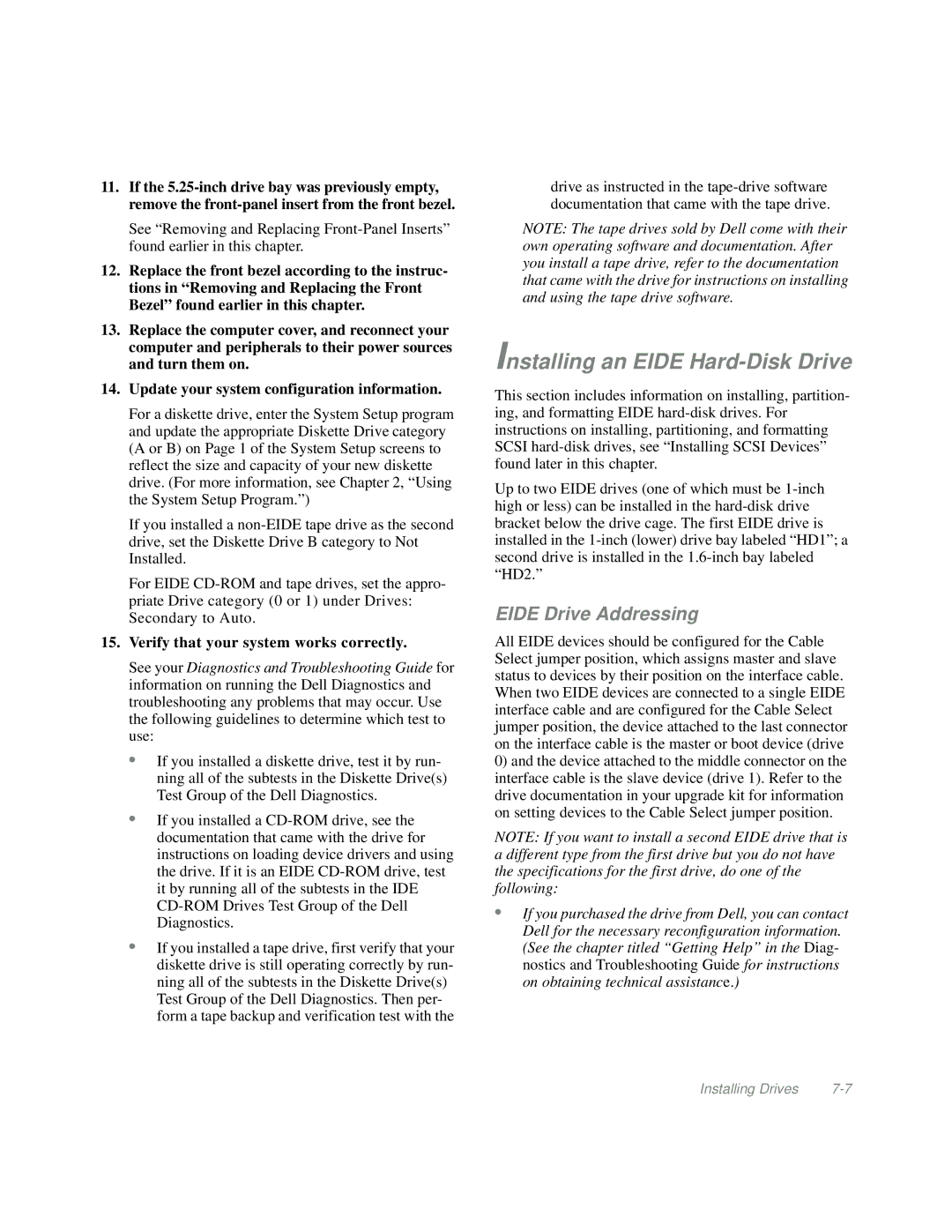11.If the
See “Removing and Replacing
12.Replace the front bezel according to the instruc- tions in “Removing and Replacing the Front Bezel” found earlier in this chapter.
13.Replace the computer cover, and reconnect your computer and peripherals to their power sources and turn them on.
14.Update your system configuration information.
For a diskette drive, enter the System Setup program and update the appropriate Diskette Drive category (A or B) on Page 1 of the System Setup screens to reflect the size and capacity of your new diskette drive. (For more information, see Chapter 2, “Using the System Setup Program.”)
If you installed a
For EIDE
15.Verify that your system works correctly.
See your Diagnostics and Troubleshooting Guide for information on running the Dell Diagnostics and troubleshooting any problems that may occur. Use the following guidelines to determine which test to use:
•If you installed a diskette drive, test it by run- ning all of the subtests in the Diskette Drive(s) Test Group of the Dell Diagnostics.
•If you installed a
•If you installed a tape drive, first verify that your diskette drive is still operating correctly by run- ning all of the subtests in the Diskette Drive(s)
Test Group of the Dell Diagnostics. Then per- form a tape backup and verification test with the
drive as instructed in the
NOTE: The tape drives sold by Dell come with their own operating software and documentation. After you install a tape drive, refer to the documentation that came with the drive for instructions on installing and using the tape drive software.
Installing an EIDE Hard-Disk Drive
This section includes information on installing, partition- ing, and formatting EIDE
Up to two EIDE drives (one of which must be
EIDE Drive Addressing
All EIDE devices should be configured for the Cable Select jumper position, which assigns master and slave status to devices by their position on the interface cable. When two EIDE devices are connected to a single EIDE interface cable and are configured for the Cable Select jumper position, the device attached to the last connector on the interface cable is the master or boot device (drive
0)and the device attached to the middle connector on the interface cable is the slave device (drive 1). Refer to the drive documentation in your upgrade kit for information on setting devices to the Cable Select jumper position.
NOTE: If you want to install a second EIDE drive that is a different type from the first drive but you do not have the specifications for the first drive, do one of the following:
•If you purchased the drive from Dell, you can contact Dell for the necessary reconfiguration information.
(See the chapter titled “Getting Help” in the Diag- nostics and Troubleshooting Guide for instructions on obtaining technical assistance.)
Installing Drives |
